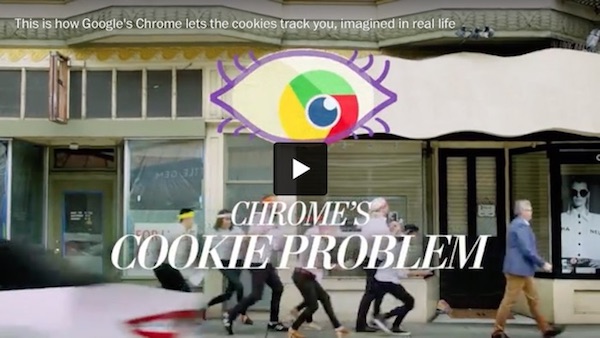Apple's new iPhone commercial is a rip-off
By Mark Hurst • June 3, 2021
On May 20, Apple posted an iPhone TV commercial on YouTube, part of their campaign called “Privacy. That’s iPhone.” [sic]
You may have seen the image representing the Apple campaign:
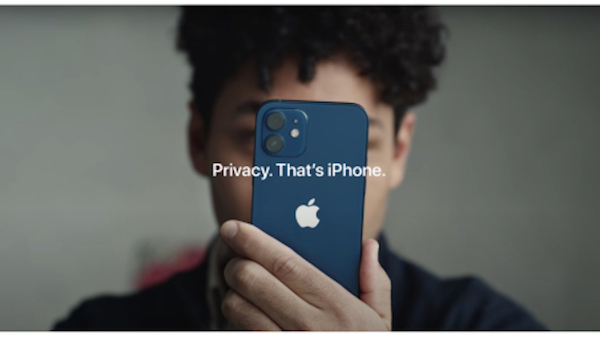
It’s a rip-off.
Back in June 2019, Geoffrey Fowler wrote a Washington Post article about intrusive surveillance built into Google Chrome. There was an accompanying video featuring Fowler:
In the WaPo video, Fowler is seen walking in public, trailed by actors symbolizing surveillance:
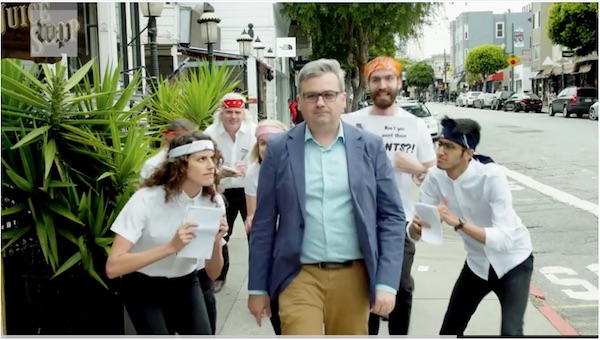
In Apple’s new iPhone commercial, the protagonist is seen walking in public, trailed by actors symbolizing surveillance:
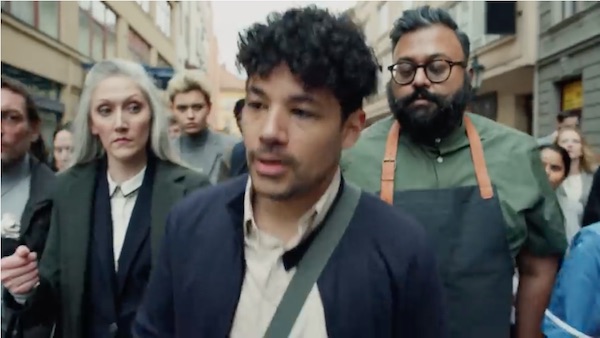
In the WaPo video, Fowler is shown in a store, surrounded and distracted by the surveillance actors:
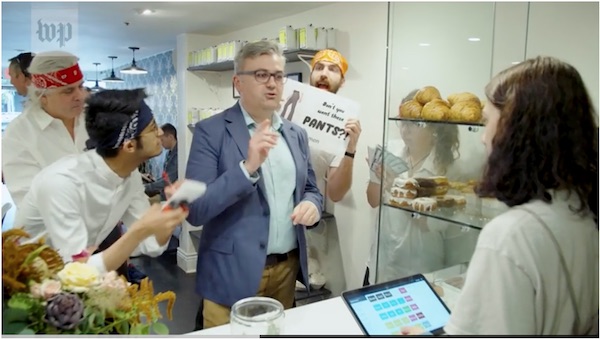
In the Apple video, the protagonist is shown in a store, surrounded and distracted by the surveillance actors:
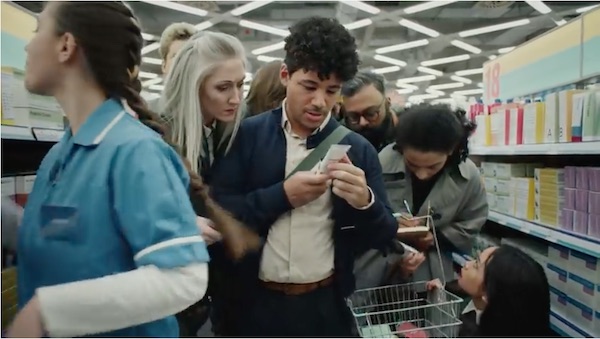
The WaPo video ends with the surveillance actors disappearing in a puff of smoke:
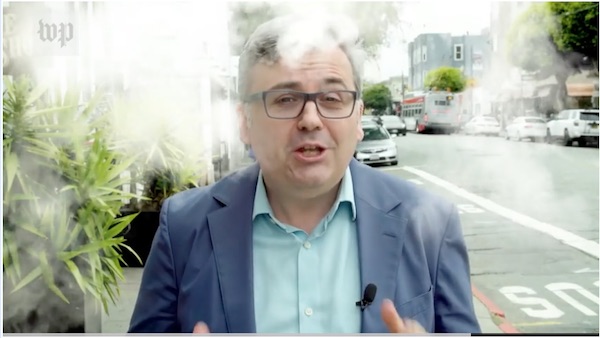
The Apple video ends with the surveillance actors disappearing in a puff of smoke:

You’d think a multi-trillion-dollar company could come up with an original idea, and not rip off a two-year-old video made by the Washington Post.
You’d be wrong.
If Apple had a legitimate commitment to privacy, I’d chalk up the iPhone commercial as an inspired homage, with a comment about “the sincerest form of flattery.” But Apple is trending away from any interest in privacy, as I wrote recently in Apple is rotting. Far from rejecting surveillance capitalism, Apple is looking for ways to acquire more customer data and lock it up within Apple’s ecosystem, outside the grasp of competitors like Facebook.
I know this column may generate another wave of indignant emails, as I did after the “Apple is rotting” column (see Is your phone listening to you? for a summary). But if you’re an Apple fan, feeling the tingly outrage that sends fruit-cultists to their keyboards, please pause for a moment to consider one simple question:
If Apple is committed to privacy, why does it accept $10 billion a year from Google?
It’s a serious question. While the company mounts a global ad campaign centered on “privacy,” Apple continues to accept payment from Google, in exchange for presenting Google’s privacy-destroying search as the iOS default. And it’s an enormous sum, I’d guess the single biggest payment - and at nearly 100% margin - that Apple receives annually. There is simply no room to maneuver here: Apple’s advertising tries to claim a moral high road, while Apple’s actual behavior shows where its true commitment lies. (Emphasis on “lies.”)
So the iPhone commercial is hardly Apple’s only rip-off. They’re starting to rip off the surveillance-capitalist business model of Facebook and Google, too.
Apple’s privacy claims are debunked in Apple robbed the mob’s bank, which explains what really happens when Apple asks people if they want Facebook to track them:
Apple has robbed the mob’s bank. In bolstering its ads business while severely handicapping other advertising platforms — but especially Facebook — with the introduction of a privacy policy that effectively breaks the mechanic that those platforms use to target ads, Apple has taken money from a party that is so unsympathetic that it can’t appeal to a greater authority for redress. Apple has brazenly, in broad daylight, stormed into the Bank of Facebook, looted its most precious resource, and, camouflaged under the noble cause of giving privacy controls to the consumer, fled the scene.
The author concludes that Apple’s ploy is “an obvious commercial land grab dressed up as a moral crusade.” I’d say exactly the same for that iPhone commercial.
I find it funny that Apple stole from the Washington Post, in order to promote a lie about “privacy,” all to advance a business model cloned from Facebook and Google. It’s all so... derivative. I wonder what Steve Jobs would think.
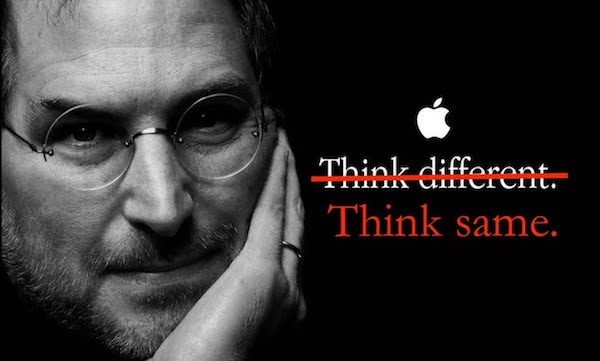
Comment on this column: Creative Good members, post a comment on the Creative Good Forum. If you're not a Creative Good member, read the official announcement and join us!
Until next time,
-mark
Mark Hurst, founder, Creative Good - see official announcement and join as a member
Email: mark@creativegood.com
Read my non-toxic tech reviews at Good Reports (see the new entry on Removing your info from data brokers)
Listen to my podcast/radio show: techtonic.fm
Subscribe to my email newsletter
Sign up for my to-do list with privacy built in, Good Todo
Twitter: @markhurst
- - -
